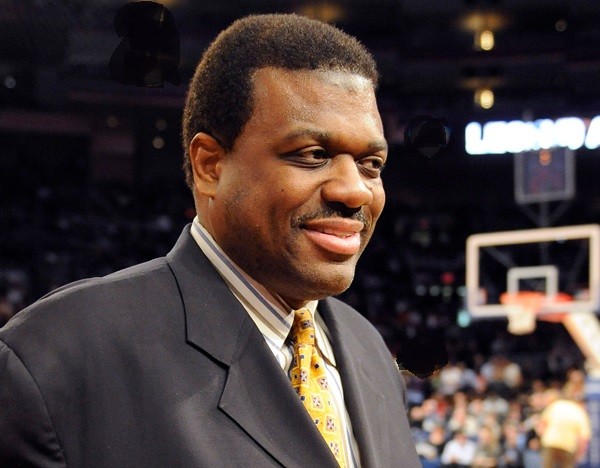As Michael Jordan is demonstrating, when you are one of the all-time greats, basketball fame does not fade fast.
Bernard King, Tennessee’s three-time all-American, three-time SEC player of the year, Naismith Memorial Basketball Hall of Fame, class of 2013, is back in the news at age 63.
Madison Square Garden Network is televising New York Knicks classics to fill the virus void. It has already shown King’s back-to-back 50-point performances from 1984. Sometime soon it will offer another look at his 60-point Christmas afternoon.
That is small stuff compared to what is on the drawing board. Hollywood producer Rodney Henry, Protege Pictures, has purchased movie rights to King’s autobiography, “Game Face.”
King, known for his icy stare of fierce intensity, smiled and said he is overjoyed.
Henry smiled and said he is interviewing actors and looking for the right screenplay writer to “capture the grittiness and time of New York.’’
Bernard was quick when asked who he would like to play him in the film.
“He has to be handsome, suave and sexy.’’
Henry wants the movie to be more than an athlete and his love of the game. He intends to use King’s comeback from the devastating knee injury to NBA all-star status as inspiration for others.
He’s already editing the unwritten script – perseverance, hard work and determination can overcome almost anything.
Be sure there will be undertones of social ills, neighborhood violence, Southern racism, alcohol and drugs. It’s in the book.
His mother fretted when he skipped church to shoot baskets. She never bothered to see him play.
He won his first trophy as a sixth-grader but lost it on the way home.
“I walked around the corner and some guys punched me in the eye and took my trophy.”
There are details about discrimination, including conflicts with police in Knoxville and elsewhere. One officer hit him on the head with the butt of his gun while investigating a simple loitering report. Bernard said one called him a “nigger.”
The Kentucky fan who threw the lighted cigarette into King’s hair was hatred personified.
Drink and drugs took their toll and were factors in an arrest or three. King’s recovery is a great accomplishment.
There are charming stories that any movie audience would enjoy.
Bernard’s introduction to Tennessee recruiting was from a 12th floor window in the really rough and tumble Fort Greene housing project in Brooklyn.
“Down below was a four-foot-11 white guy in a bright orange blazer. There were no white guys in the projects.”
The fearless stranger was Stu Aberdeen. He’d been to New York before, to recruit Ernie Grunfeld. OK, Forest Hills is different.
There was another shock for Bernard. He and Stu were chauffeured into Manhattan for dinner at the famous Mama Leone’s.
“I had never been to a restaurant in my life.”
The Ernie and Bernie Show was the best ever at UT. Two terrific talents played together three seasons. Because of mutual respect and Ray Mears, one ball was enough. Both stars were totally unselfish.
For a small fee, I can contribute a story or two. There was a priceless hour and a half, a 1975 Sunday team luncheon on the way to a Monday game at Kentucky, Mears treat, Berea Tavern, elegant dining room, dignity in the antique furniture, linen napkins and silver for a seven-course banquet.
There was a hint of class on the menu, too – lamb chops with mint jelly, roast turkey and baked salmon.
Bernard hesitated. He didn’t see anything he really wanted, certainly not clam chowder or oyster dressing or spoon bread. At last, he decided on a hamburger. There were startled expressions all around but the wait staff did not flinch.
Lunch seemed a little slow to the tables. It turned out that the nearest hamburger joint was no short drive.
There’s a Bernard story from his shooting experience in the long-ago movie “Fast Break.”
Gabe Kaplan, the star, learned to like King. He invited him to a night out in Los Angeles, a ride in a shiny, black Rolls-Royce convertible – to Playboy Mansion.
First reaction: Awesome, never saw anything like it.
Bernard spotted a beautiful girl with a come-hither glow. She wanted to talk with Bernard. Berry Gordy, founder of Motown Records, cornered Kaplan.
King was enjoying conversation and ambiance when Kaplan suddenly appeared and said “Let’s go.”
King was speechless.
Later, Kaplan explained. Before Gordy stopped by the table, he had sent an associate to introduce himself. It was a fact-finding mission.
“Gordy didn’t know who I was.”
Kaplan was famous. He didn’t want to be anywhere, even Playboy Mansion, where people didn’t know his name.
We know King’s name and numbers. In 76 career games with Tennessee, he logged 62 double-doubles and averaged 25.8 points and 13.2 rebounds. Think about that!
He led the 1984-85 NBA in scoring, 32.9 for the Knicks and coach Hubie Brown.
He played pro ball for most of 14 seasons. He was four times an all-star. He lost a lot of time with the terrible knee injury. Three doctors said he’d never play again. Two said he might have trouble walking.
That fierce determination, what you saw in his game face, carried him through long recovery and rehabilitation. He played. He finished just short of 20,000 points but it took almost 20 years to get into the hall of fame.
He said all the right things at enshrinement but soon sold his ring and trophy to an auction company. The check had a lot of zeros. That may not make the movie.
Marvin West welcomes reader comments or questions. His address is marvinwest75@gmail.com

